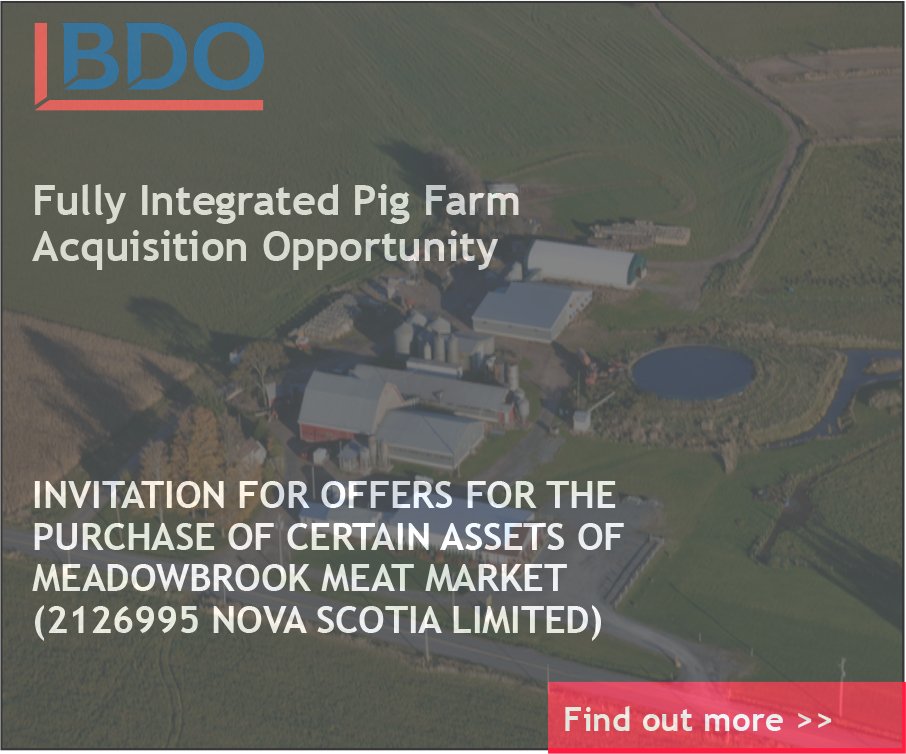Maritime beef sector prepared to embrace opportunities
/by Cedric MacLeod
As one travels about the Maritimes, the prevalence of the beef industry is not always immediately evident. Unless you are travelling through the reclaimed marshlands that join New Brunswick and Nova Scotia, which incidentally was home to more than 60,000 cows in the not too distant past, the average Maritimer might not realize that more than 1,800 farm families comprise the Maritime beef sector.
With farm gate receipts of roughly $90 million, and a total economic contribution to the region of more than $500 million, the industry should not be taken lightly. Considering how interwoven the beef and forage sectors are, and all the environmental goods and services being generated on behalf of Canadians (climate change mitigation, topsoil preservation, wildlife biodiversity), the importance of the sector starts to really add up.
The three Maritime provincial beef associations hold regular meetings throughout the year and producers are asked to bring their challenges and opportunities to the table for discussion. The main challenges tend to be improving profitability and finding the next generation to take over the farm. Well, the Maritime Beef Council has a strategy for addressing those challenges.
If you have attended the Maritime Beef Conference for the past several years, you may have taken in an innovative farm financing workshop on the Friday afternoon preceding the main event. Programs such as the Livestock Incentive Loan Program and the Canadian Agricultural Loans Act (CALA) provide ready-made solutions to financing a new or expanding beef herd, but are often overlooked as options. We are looking to change that.
The Maritime Beef School concept has been created as a structured professional development opportunity for new and existing beef farm operators. The intent is to expose participants to the most profitable management practices informed by current science. A well-structured and well-managed farm keeps more dollars in your pocket and brings market premiums. If you aren’t currently winning on both ends, the strategy is ready-made for you.
Forage production is the foundation of the beef enterprise and can account for up to 70 percent of a cow-calf operator’s cost of production. The now annual Maritime Forage Field Day, hosted jointly by Agriculture and Agri-Food Canada and the Maritime Beef Council, links primary producers with research and extension leads from across the region. Remember that each day the Canadian grazing season is extended, the Canadian cattle industry saves $4 million. Considering the Maritime beef sector is one percent of the national total, that’s $40,000 per day for the Maritimes. Are you getting your piece? If not, we’ll see you at the Forage Field Day in Nappan, N.S., in early August 2019.
Of course, without a solid market to feed, a growth strategy is simply an academic exercise. Luckily, we have two burgeoning markets looking for high-quality feeder calves and finished cattle. Atlantic Beef Products in Albany, P.E.I., continues to find success in growing its numerous high-quality beef brands, driving local demand for up to 32,000 head per year. Market incentives through the P.E.I. Certified Beef and Verified Beef Production Plus programs are putting more dollars in producers’ jeans and enhancing Canadian consumer trust in the beef products you work hard to produce. Lots of wins in this scenario.
Further to market opportunities, don’t count out the impact of the Ontario Corn Fed Beef program on the value of high-quality Maritime calves. The well-branded Ontario program is in the market for upward of 300,000 calves per year to enter Ontario feedlots, and its impact is likely to put positive upward pressure on calf prices here at home for the foreseeable future.
Of course, a growth strategy is just a document without industry buy-in. With the growth in attendance we are seeing at regional events and the increasing number of next-generation operators in the crowd, the future is looking bright as long as we embrace opportunities as they present themselves. Luckily, the Maritime beef sector has a strategy for that.
(Cedric MacLeod is the opportunities coordinator with the New Brunswick Cattle Producers association. The Maritime Beef Council is an industry partnership of New Brunswick, Nova Scotia, and P.E.I. cattle producers.)











